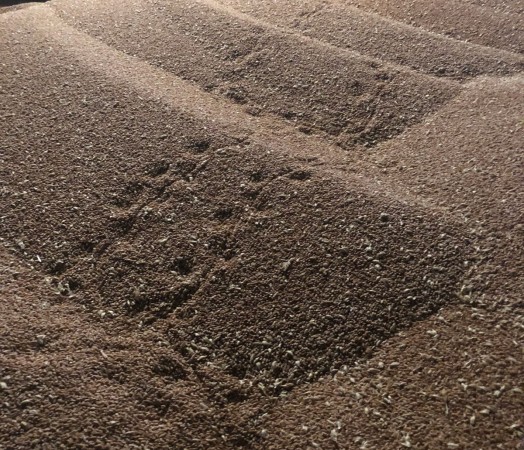Rodent control in Grain Stores- Part 1 of 3
Thursday 4th February 2021
I once had a prospective customer say to me, “what are we going to do? I’m sitting on four thousand tonnes of rat food!”
It’s true, rats and farms go together. They have doubtless always gone together since the invention of farming.
How is it best to break off an unwanted relationship that is over eleven thousand years old?
I have the answer for you, and you aren’t going to like it. But first a little bit of background.
The relationship between rats and farms-
Rats are a ‘commensal’ species. That is, a species which benefits from the activities of another. In our case it is rats benefitting from farmers. Farmers take lots of the ideal food for a rat. Put it all in one place and then leave it alone until it is time to sell it. For a rat, this is ideal.
This is probably obvious but, what is the problem with rats? Is it that they eat the grain in the store? Well yes, but this isn’t the main problem.
"Rats spoil three times as much food as they eat"
The real problem is the amount of grain that they spoil. Rats are fairly productive when it comes to droppings and urine and during a field study they were found to spoil 3 times as much grain as they ate. Let’s do some ratty maths.
A single rat can eat a third of its body weight every day. An adult rat weighs around half a kilogram. That means it eats around 166 grammes of wheat in a day and spoils half a kilo of wheat. Over a year a rat can eat one sixth of a tonne of wheat in a single year and spoil around half a tonne. Meaning that one unchecked rat can ruin or eat ¾ tonnes of wheat in a single year. Or at current prices, a single rat is costing you £120-150 per year.
Combine this with the rate that they breed. Rats are very prodigious and can have a litter of eight pups at a time and several litters in one year. You can see how things can quickly get out of hand and expensive.
Further unwanted expense is caused by rats wanting to gnaw at everything. The word rodent comes from the Latin “rodere” which means “to gnaw.” So, whoever named them back in Roman times decided that this was their main habit and not much has changed. If left unchecked the rat incisors will grow by 4 inches per year!
What do they gnaw on? Pretty much everything that has a bit of bite. Some rats are irritatingly drawn to electrical wires and fuel pipes in farm machinery leading to dizzyingly expensive repair bills. Some rats will gnaw at wooden posts and frames and can cause significant structural damage to older farm buildings.
So, What to Do?
With rat control on farms you have the following options:
|
Solution |
Pros |
Cons |
|
Get a cat |
You don’t have to pay them |
They will only kill a few and will poo all over your grain |
|
Shooting |
You can do it yourself |
You won’t get them all, you are treating the symptom not the problem and you will have A LOT of late nights |
|
Traditional pest control (the chap from the village) |
It’s very available and relatively cheap if you don’t take the grain and machinery costs into account |
You won’t get them all, it is open ended and not good for the environment. You are treating the symptom and not the cause. |
|
Dealey pest control |
Only use bait when needed. Much better for the environment. A long-term solution. Treating the cause not the symptom. Protecting your profits. |
It’s not as cheap as the chap from the village. |
With pest control on farms, we go deep. With the expenses shown above which would you prefer; a one-time expense to keep rats out of your buildings or an ongoing unlimited expenses because of rat activity?
Use the button below to arrange a survey.



